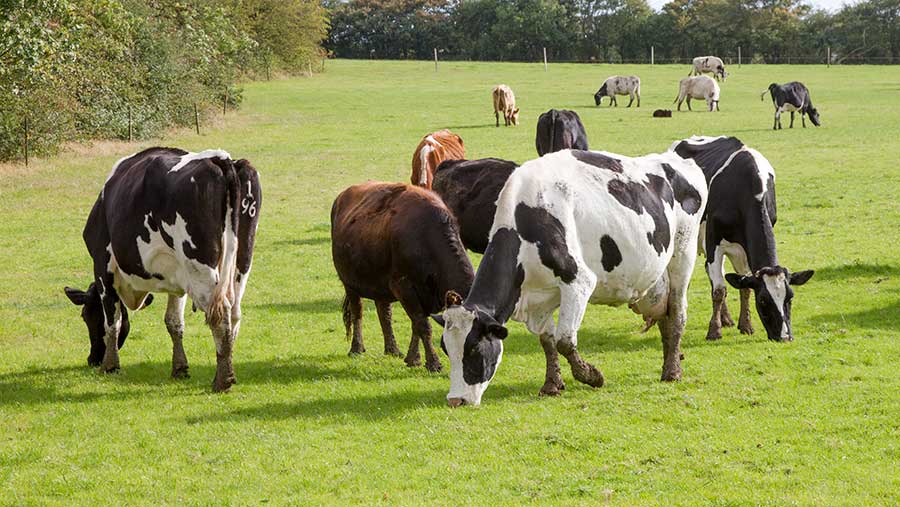Cutting-edge projects get share of £270m innovation funding
 One of the projects aims to reduce dairy methane emissions © GNP
One of the projects aims to reduce dairy methane emissions © GNP More than £18m has been awarded to 50-plus cutting-edge farming projects that will boost food production, move agriculture towards net-zero carbon, and create a more resilient and sustainable agricultural sector, the government has announced.
The projects include genetics research which could reduce methane emissions in cattle by 17% per generation, and investigations into the use of drones and artificial intelligence to inspect and monitor animals.
See also: EU approves first methane-reducing feed additive for cattle
Efforts to develop biopesticides using fungal strains to help tackle pests in wheat crops, and to pinpoint the genetics for creating slug-resistant wheat, are among the successful projects.
Defra has also opened a new £12.5m “on-farm environmental resilience” competition, with farmers invited to apply for up to £1m for projects designed to do things such as control pests, boost soil resilience, reduce fertiliser use, and manage extreme weather challenges.
Defra secretary Thérèse Coffey said: “Farmers are always forward-looking, and innovation is key to driving forward a resilient, productive and sustainable agriculture sector that puts food on our tables whilst protecting and restoring the environment.
“Alongside our new farming schemes, these grants will help to support farmers and pave the way for a technological transformation that will help produce food sustainably for generations to come.”
The funding is all part of the Farming Innovation Programme, run in partnership with UK Research & Innovation and delivered by Innovate UK.
This initiative is making £270m in grants available before the end of the agricultural transition to fund research and development projects that aim to help farmers and growers produce food more sustainably.
Up to £30m is set to be awarded to 58 successful projects from the four most recent rounds of applications, of which £18m has been allocated so far.
